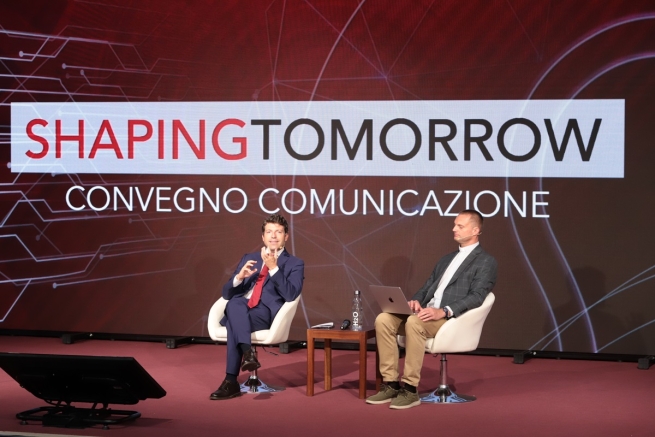In front of an audience from more than 80 different countries, from all continents, Bolzetta reviewed the Church's magisterial documents on the subject of presence in the digital world and analyzed in parallel the corresponding actions carried out by its exponents - clergy, religious and laity.
His analysis showed how, at least in the Italian reality, the religiously inspired presence is a non-negligible aspect of the web, with at least 16,000 sites defined as 'Catholic'; at the same time, however, the speaker warned against reasoning only in quantitative and muscular terms to measure the effectiveness of a presence capable of transmitting values and - ultimately - the message of the Gospel.
Rather, it signaled the confident and open attitude and the real interest with which the Church has faced and still accompanies the evolution of the digital world: from the first online approaches in the mid-1990s, to the more and more intense entry into social networks, to the current great attention towards the potential of Artificial Intelligence - to which, for example, the Holy Father Francis has dedicated two Pontifical Messages this year: the one for the World Day of Peace and the one for the World Day of Social Communications, which testifies to a truly remarkable consideration.
In relation to all this, the journalist therefore urged 'no longer to ask if, but how to engage with the digital world', and to clear the field of misunderstandings, he specified that the digital encounter that the Church wants to propose on the web does not in any way aim to replace the one in presence, but aims to 'use the new technology so that it is generative of relationships'.
The digital environment, the speaker added, constitutes a suitable habitat for the model of the Church proposed by Pope Francis: synodal, on the move and outgoing; and digital spaces, which can rightly be understood as a digital continent for evangelization, are also naturally appropriate places to exercise listening and encounter, other traits that are fundamental today for an authentic Christian witness.
"The digital mission is not a separate area of mission, but a crucial dimension of the Church's witness in contemporary culture," he summarized, quoting the Magisterium, before making an appointment to the Jubilee of Digital Missionaries and Influencers scheduled for next year.
In the second part of his speech, Bolzetta further expanded on the main theme of the digital 'missionary frontier', that of Artificial Intelligence, with a balanced view that does not deny the dangers of its misuse, but at the same time does not fail to point out the infinite opportunities of its healthy use.
Then, in his capacity as president of WeCa - an association that already boasts some 20 years of history as a place for exchange, training and sharing for all those who love digital tools - he invited those present to rethink and continually imagine with creativity how to use digital technologies at the service of the mission; and he also launched the proposal to take advantage of the current conference to organize a large Salesian communication and collaboration network.
Finally, Bolzetta concluded with a reference to St Paul, as an incentive not to neglect the task of communicating the Gospel to young people in digital spaces: 'How will they be able to call on him without first having believed in him? And how will they believe without having heard of him? And how shall they hear of him without one who proclaims him?" (Rom 10:14).



